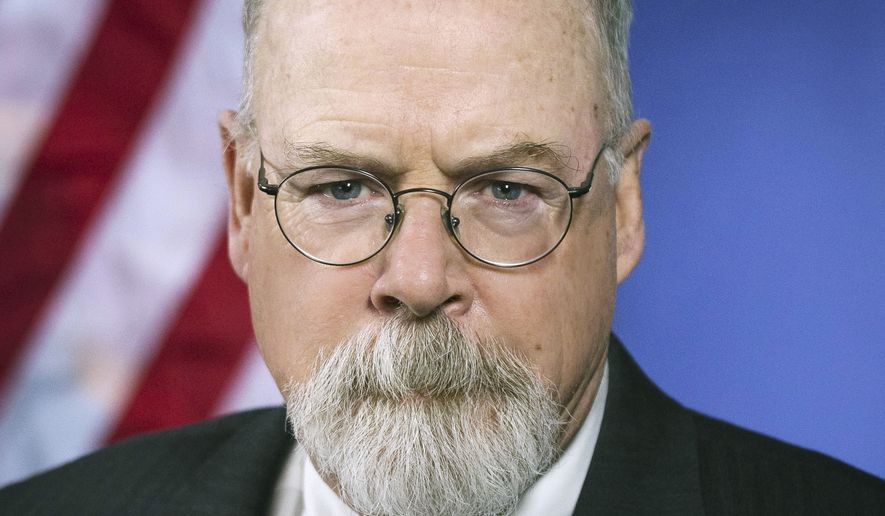The CIA concluded in early 2017 that Clinton campaign attorney Michael Sussmann’s dirt tying President Trump to Russia was “not technically plausible,” special counsel John Durham said in a court filing posted Saturday.
Mr. Durham said Mr. Sussmann met with a second government agency in February 2017 and presented evidence purportedly linking Mr. Trump to Russia. Although Mr. Durham didn’t name the agency, reports confirmed that Mr. Sussmann met with the CIA around this time.
During the meeting, Mr. Sussmann presented the CIA with accusations of a secret communications channel between the Trump Organization and Russia’s Alfa Bank, according to the court filing. He also passed along information about suspicious internet data related to Russian-made phones used near the White House, Mr. Durham said.
In his filing, Mr. Durham says the CIA concluded that the accusations were untrue.
“Agency 2 concluded in early 2017 that Russian Bank 1 data and Russian Phone Provider 1 data was not ‘technically plausible,’ did not ‘withstand technical scrutiny,’ ‘contained gaps,’ ‘conflicted with [itself],’ and was ‘user-created and not machine/tool generated,’” Mr. Durham wrote.
Both accusations were later debunked, including by special counsel Robert Mueller.
The court document was filed late Friday in response to Mr. Sussmann’s bid to exclude evidence from his trial, scheduled to begin on May 16.
Mr. Sussmann has been charged with one count of lying to the FBI. He is accused of telling a top FBI lawyer that he was not representing a client when he turned over evidence supposedly linking Mr. Trump to Alfa Bank when he was really attending the meeting on behalf of the Clinton campaign, which he later billed for the meeting.
Ahead of his trial, Mr. Sussmann is seeking to exclude evidence related to the gathering of domain name system data by a technology executive, identified as Rodney Joffe, who worked with the Clinton campaign attorney.
In an earlier filing, Mr. Durham said the DNS traffic was “exploited” by Mr. Sussmann and Mr. Joffe to dig up dirt on Mr. Trump by monitoring internet traffic flowing from his residences and even the White House.
Attorneys for Mr. Sussmann say the data is irrelevant to their client’s charges.
Mr. Durham, in the filing posted Saturday, argued that the DNS evidence is “a necessary factual backdrop to the charged conduct.” He wrote that the data will “prove the existence of the defendant’s attorney-client relationships with” both Mr. Joffe and the Clinton campaign.
He also wrote that the information will reveal the steps the FBI and CIA took to investigate the accusations Mr. Sussmann presented.
That matters because it establishes “materiality,” meaning it will show that investigators used government resources to look into Mr. Sussmann’s claims without knowing they came from a rival political campaign.
“Evidence concerning the steps the FBI and Agency-2 took to investigate these matters is critical to establishing materiality because it will enable the jury to evaluate those steps, which, in turn, will inform their conclusions about whether the defendant’s alleged false statements were material and could tend to influence or impair government functions,” Mr. Durham wrote.
The special prosecutor said he intends to call a witness from at least one of the companies who maintained the Trump server that was the subject of the Alfa Bank accusations.
• Jeff Mordock can be reached at jmordock@washingtontimes.com.




Please read our comment policy before commenting.